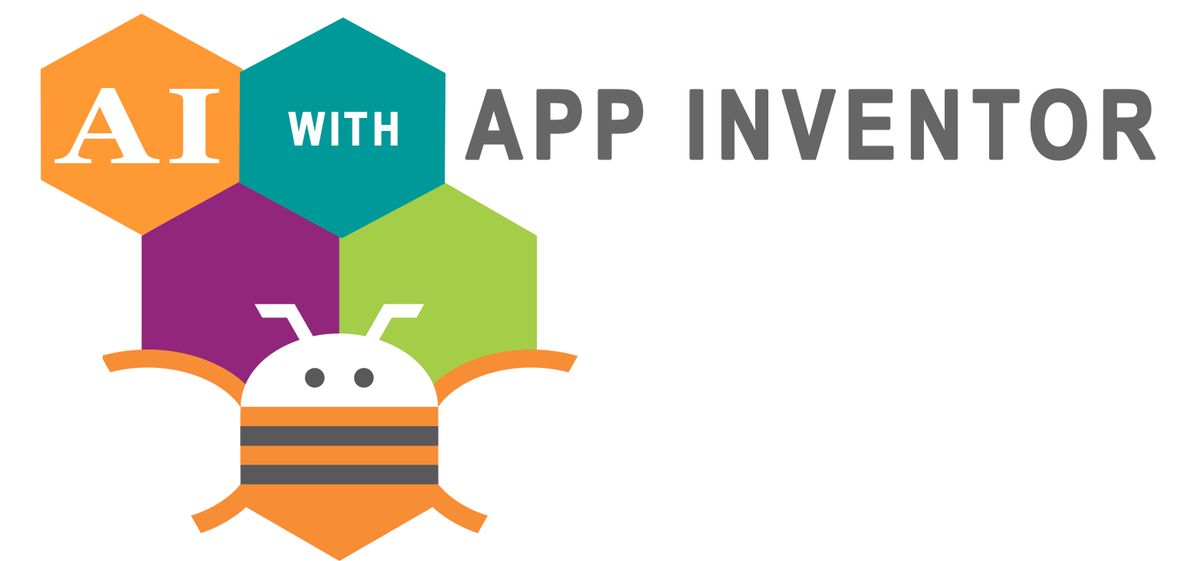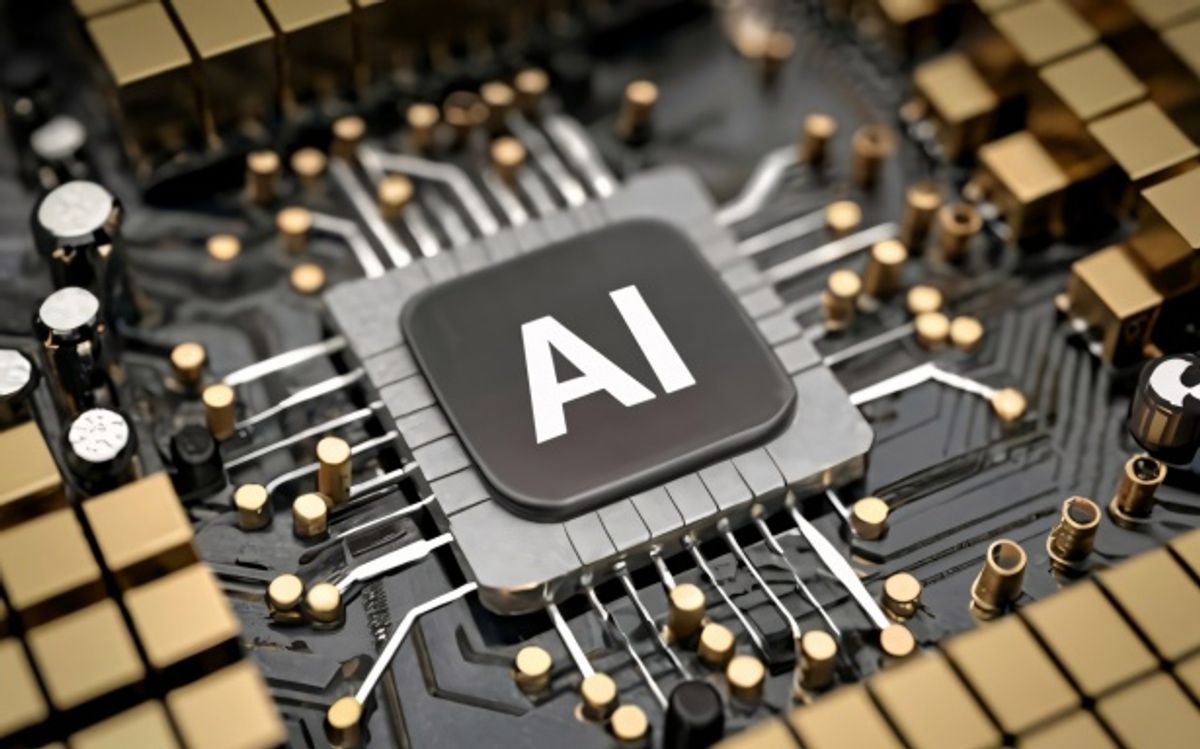In today's rapidly evolving business landscape, Artificial Intelligence (AI) scheduling technology has emerged as a critical tool for organizations aiming to enhance efficiency, gain a competitive edge, and deliver superior customer experiences. Embracing AI scheduling solutions not only streamlines operations but also provides invaluable insights, predictive analytics, and personalized service that can transform the way businesses operate. As we delve into the reasons why your business should adopt AI scheduling technology now, let's consider the key takeaways from this exploration.
Key Takeaways
- AI scheduling technology automates routine tasks, optimizing workflows and freeing up employee time for higher-value activities.
- Custom AI solutions provide a tailored approach to business needs, offering predictive analytics and data-driven insights for better decision-making.
- Intelligent scheduling enhances customer experiences by personalizing interactions, reducing wait times, and anticipating customer needs.
- Successful AI adoption requires a strategic roadmap, addressing implementation challenges and continuously measuring and adjusting strategies.
- Investing in AI scheduling is a long-term growth strategy that contributes to business sustainability, workforce protection, and customer satisfaction.
Enhancing Efficiency and Productivity with AI Scheduling

Automating Routine Tasks to Free Up Employee Time
In the modern business landscape, AI-powered automation tools are revolutionizing the way we work. By taking over routine tasks such as data entry, scheduling, and document processing, these tools are not only enhancing efficiency but also allowing employees to redirect their focus towards more strategic and creative endeavors.
The adoption of AI scheduling technology marks a significant shift in optimizing business operations. Employees are now able to concentrate on innovation and tasks that align with their specific skill sets, leading to improved work performance and engagement.
Here are some of the key benefits of using AI to automate routine tasks:
- Increased efficiency and time savings
- Higher accuracy and reduced human error
- Cost savings through optimized resource allocation
- Elevated employee satisfaction and productivity
For instance, a recent implementation of AI in document processing resulted in saving over 10,000 manual hours, translating to approximately 850 hours per month. This substantial time economy underscores the transformative potential of AI in the workplace.
Optimizing Workflows for Peak Performance
In the pursuit of peak performance, AI scheduling technology plays a pivotal role in optimizing workflows. By leveraging AI, businesses can automate repetitive tasks, allowing employees to dedicate their time to more strategic initiatives. This shift not only enhances productivity but also fosters an environment of innovation.
The integration of AI into business operations streamlines processes and empowers companies to make data-driven decisions. With AI's ability to analyze data in real-time, businesses gain a competitive edge by responding swiftly to market changes and internal dynamics.
A recent study by Gartner underscores the transformative potential of AI in the workplace. Organizations utilizing AI for workflow optimization have reported up to a 40% increase in productivity and a 30% reduction in operational costs. These figures are a testament to the efficiency gains achievable through AI technologies.
Here's a glimpse at the Top 10 AI Tools for Maximizing Workflow Efficiency in 2024:
- Asana – AI-Powered Project Management
- Trello – Intelligent Task Management
- Slack – Smart Communication
By adopting such tools, businesses can ensure that their workflows are not just efficient, but also resilient and adaptable to future challenges.
Predictive Analytics for Better Resource Management
The integration of AI in predictive analytics is revolutionizing how businesses manage resources. Predictive analytics enables companies to anticipate demand and optimize inventory, ensuring that they are well-prepared for future needs. By analyzing patterns and trends, AI systems can forecast potential disruptions, allowing for proactive adjustments to supply chains and operations.
- Risk management is a critical aspect where AI significantly contributes. Predictive models assess and mitigate risks by identifying potential issues before they escalate, which is essential for maintaining a smooth business operation.
With predictive modeling and scenario analysis, businesses can minimize the impact of global shifts such as geopolitical tensions or trade disputes.
The benefits of adopting AI for predictive analytics are manifold, including:
- Better Decision-Making: Informed strategies lead to strategic growth.
- Increased Revenue: Enhanced cross-selling and upselling techniques.
- Enhanced Customer Experience: Personalized interactions boost satisfaction.
- Improved Efficiency: Streamlined processes reduce operational costs.
Driving Competitive Advantage Through AI Integration

Custom AI Solutions for a Tailored Approach
In the realm of AI scheduling, custom AI solutions stand out by offering a level of personalization that generic tools cannot match. These solutions are meticulously crafted to align with the unique challenges and objectives of your business, ensuring that every feature and function serves a specific purpose. By adopting a custom approach, companies can automate tasks more effectively, optimize their workflows, and gain valuable insights tailored to their operations.
The process of integrating custom AI solutions involves several key steps:
- Collaborating with AI experts to define business needs
- Designing AI algorithms that cater to those needs
- Ensuring seamless integration with existing systems
- Providing ongoing support and maintenance
By investing in custom AI solutions, businesses not only streamline their operations but also lay the groundwork for continuous innovation and growth.
The benefits of such personalized AI applications are manifold. They maximize efficiency, reduce operational costs, and enhance customer experiences. In a rapidly evolving digital landscape, these custom solutions are not just an option but a necessity for businesses aiming to maintain a competitive edge and drive long-term success.
Staying Ahead with Advanced Forecasting Techniques
In the rapidly evolving business world, staying ahead of the curve is not just an advantage; it's a necessity. Advanced forecasting techniques powered by AI are pivotal in this quest. AI forecasting models harness historical data and patterns to predict future events or trends, enabling businesses to make proactive decisions.
By leveraging AI-driven demand forecasting and inventory optimization algorithms, companies can reduce stockouts, minimize overstocking, and streamline orders, leading to significantly improved customer satisfaction and enhanced operational efficiency.
The benefits of adopting AI for forecasting are manifold. Here's a snapshot:
- Better Decision-Making: AI insights guide strategic growth.
- Increased Revenue: Personalized AI solutions boost sales.
- Operational Efficiency: Optimized inventory management.
AI's predictive capabilities extend to anticipating market shifts, such as geopolitical tensions or trade disputes, allowing businesses to prepare and adapt swiftly. This forward-looking approach is crucial for future-proofing strategies and maintaining a competitive edge.
Improving Decision-Making with Data-Driven Insights
In the age of information, data is the cornerstone of strategic decision-making. AI scheduling technology harnesses this data to provide businesses with unparalleled insights, enabling them to make informed decisions that propel growth and innovation. By analyzing patterns and trends within large datasets, AI algorithms can uncover opportunities that might otherwise remain hidden.
- Actionable Insights: Leveraging data to inform strategic actions.
- Quality Assurance: Ensuring data accuracy for reliable AI applications.
- Value Realization: Turning data into tangible business outcomes.
Embracing AI for decision-making not only sharpens competitive edge but also fosters a culture of data-driven excellence within an organization.
The integration of AI into business processes goes beyond mere analysis; it transforms raw data into a strategic asset. Companies that invest in robust data management and analytics capabilities are better positioned to navigate the complexities of today's market dynamics and to sustain long-term growth.
Improving Customer Experiences with Intelligent Scheduling

Personalized Customer Interactions
In the age of digital transformation, personalized customer interactions are becoming the cornerstone of business success. AI scheduling technology plays a pivotal role in this evolution, enabling businesses to tailor experiences to individual customer needs. By analyzing customer data, AI can anticipate preferences and behavior patterns, ensuring that each interaction is not only efficient but also uniquely personal.
The benefits of adopting AI for personalized interactions are manifold. Here's a snapshot of what businesses stand to gain:
- Enhanced customer experience
- Improved efficiency
- Better decision-making
- Increased revenue
The integration of AI into customer service workflows allows for a seamless and highly personalized experience that resonates with customers on an individual level.
With the global AI market projected to grow exponentially, businesses that harness the power of personalized AI are positioning themselves for long-term growth and customer loyalty. The future of customer interactions hinges on the strategic use of AI to deliver not just service, but a memorable experience.
Reducing Wait Times and Enhancing Service Delivery
In today's fast-paced world, reducing wait times is not just a convenience; it's a competitive necessity. AI scheduling technology plays a pivotal role in streamlining service delivery, ensuring that customers spend less time in queues and more time enjoying the services they seek. By leveraging predictive analytics, businesses can anticipate peak times and allocate resources accordingly, leading to a smoother customer journey and significantly improved customer satisfaction.
The impact of AI on service delivery extends beyond mere time savings. It encompasses a holistic enhancement of the customer experience, where every interaction is optimized for efficiency and satisfaction. Here's how AI scheduling can transform your business operations:
- Increased sales revenue through optimized appointment bookings and resource allocation.
- Enhanced operational efficiency by minimizing overstocking and streamlining orders.
- AI-driven demand forecasting to prevent stockouts and manage inventory more effectively.
Embracing AI scheduling technology is not just about keeping up with the times; it's about setting the pace for innovation in customer service. By adopting AI, businesses can ensure that they are not only meeting but exceeding customer expectations, fostering loyalty and driving growth.
Leveraging AI to Understand and Anticipate Customer Needs
In the realm of customer service, AI's predictive capabilities are revolutionizing how businesses interact with their clientele. AI technologies like chatbots and self-service solutions not only manage workflow efficiently but also play a crucial role in anticipating customer needs. By analyzing customer data and behavior patterns, AI can identify trends and preferences, enabling businesses to offer personalized experiences.
The integration of AI into customer service allows for a more proactive approach. Businesses can now make proactive decisions, enhancing customer satisfaction and fostering loyalty.
The benefits of leveraging AI in understanding and anticipating customer needs include:
- Natural language processing allows for real-time interactions, providing instant support.
- Personalized AI solutions deliver targeted content and recommendations.
- AI-driven insights and predictive analytics inform better decision-making.
- Increased customer engagement through personalized recommendations.
- Operational optimization via AI-powered automation.
Embracing AI in customer service not only secures a competitive edge but also ensures a future where customer needs are not just met but anticipated, leading to unparalleled service delivery.
Navigating the AI Adoption Journey

Developing a Strategic AI Roadmap for Your Business
Embarking on the journey of AI adoption requires a well-structured AI strategy roadmap that aligns with your business's core objectives. This roadmap serves as a blueprint, detailing the steps necessary to integrate AI into your operations effectively.
To build a robust AI-strategy roadmap, consider the following steps:
- Establish a clear Vision for how AI will transform your business.
- Ensure Value-Realization by identifying specific areas where AI can drive efficiency and growth.
- Incorporate Risk Management to anticipate and mitigate potential challenges.
- Develop comprehensive Adoption Plans to facilitate smooth integration and acceptance across your organization.
By reinforcing these four pillars, your business can systematically develop an AI strategy that not only aligns with your long-term goals but also ensures cross-functional collaboration and sustainable success.
Overcoming the Challenges of AI Implementation
Implementing AI technology in the workplace can be a daunting task, but with a structured approach, businesses can navigate the complexities successfully. Creating an environment of transparency and education is crucial to foster acceptance and understanding among employees. This involves clear communication about the benefits and changes that AI will bring, as well as providing training to equip the workforce with the necessary skills.
To ensure a smooth transition, it's important to address potential concerns and resistance head-on. Here are some steps to consider:
- Engage with stakeholders early in the process to gather input and build consensus.
- Develop a clear AI strategy that aligns with the company's vision and long-term goals.
- Prioritize ethical AI practices and ensure cross-functional collaboration.
- Incorporate risk management to identify and mitigate potential challenges.
By methodically addressing these areas, businesses can reduce friction and set the stage for a successful AI adoption. It's not just about the technology; it's about preparing the organization for a transformative journey.
Remember, the goal is not only to implement AI but to do so in a way that supports sustainable growth and enhances the company's competitive edge. With careful planning and a holistic approach, the challenges of AI implementation can be overcome, paving the way for a future where AI is an integral part of business operations.
Measuring Success and Adjusting Strategies
To ensure that AI scheduling technology is delivering its intended benefits, businesses must define clear and measurable goals. These goals, aligned with strategic objectives, should be specific, achievable, and time-bound. For instance, goals could range from increasing revenue to enhancing customer satisfaction.
Incorporate mechanisms for measuring the effectiveness and impact of AI initiatives. Continuous monitoring, optimization, and iteration are essential for long-term success. Use KPIs to track adoption rates, user satisfaction, and productivity gains, which are crucial for making informed adjustments.
Embracing a culture of continuous improvement is vital. Regularly gather feedback from users and stakeholders to identify areas for improvement. This iterative process helps in refining AI models and algorithms, ensuring they adapt to changing business needs and maintain relevance.
By evaluating business applications and their impact on the workforce, organizations can make data-driven decisions to achieve desired outcomes. Risk management and adjustment strategies are integral to navigating the complexities of AI adoption and securing a competitive edge.
Securing Your Business Future with AI Innovations

Investing in AI for Long-Term Growth
The strategic integration of AI into business operations is not just about immediate gains; it's about setting the stage for sustained growth and innovation. By investing in AI, companies are not only optimizing current processes but also laying the groundwork for future advancements that can keep them at the forefront of their industry.
- Scalability and Sustainability
Scalable and sustainable plans are crucial for the long-term success of AI initiatives. Organizations that build flexible architectures and invest in scalable infrastructure position themselves to adapt to changing business requirements and technological advancements. This ensures that AI initiatives can grow and evolve with the company's needs.
Embracing a culture of continuous improvement can realize long-term benefits from AI investments.
- Skill Development and Talent Acquisition
To fully harness the potential of AI, businesses must focus on skill development and talent acquisition. Building a skilled workforce through training and certifications is essential for supporting AI initiatives and filling critical roles. Cross-functional collaboration further enhances the integration of AI across various departments, ensuring that AI initiatives remain relevant and impactful.
Protecting Your Workforce and Customers with Smart Automation
In the era of digital transformation, protecting your workforce and customers has become a paramount concern. Smart automation, powered by AI, is a key strategy in achieving this goal. By automating repetitive tasks, AI allows employees to focus on more complex and rewarding work, leading to increased job satisfaction and retention.
For customers, the benefits are equally significant. AI-driven systems can reduce wait times and improve service delivery, ensuring a smoother and more personalized experience. This not only fosters customer loyalty but also enhances the overall brand reputation.
The strategic implementation of AI in business processes is not just about efficiency; it's about creating a safer and more secure environment for everyone involved.
Here's how AI can contribute to a safer workplace and customer experience:
- Automating routine tasks to free up employee time
- Optimizing workflows for peak performance
- Using predictive analytics for better resource management
By integrating these AI capabilities, businesses can not only streamline operations but also provide a layer of protection that benefits all stakeholders.
The Role of AI in Business Sustainability and Resilience
In the rapidly evolving business landscape, AI plays a pivotal role in ensuring the sustainability and resilience of companies. By leveraging AI, businesses can adapt to market changes, optimize operations, and maintain a competitive edge. AI's predictive capabilities allow for better anticipation of future trends and potential disruptions, enabling organizations to prepare and respond proactively.
AI initiatives must be scalable and sustainable, integrating seamlessly into long-term strategic plans. This ensures that AI solutions evolve with the organization's needs, fostering continuous innovation and growth.
The integration of AI into business strategies is not just about immediate gains but also about securing the future. Here's how AI contributes to long-term business sustainability:
- Scalability: AI systems can grow with your business, handling increased data and complexity without a proportional increase in costs or resources.
- Risk Management: Proactive risk management through AI can identify potential issues before they become problems, safeguarding the business.
- Innovation: Continuous learning and adaptation foster an environment of innovation, keeping businesses at the forefront of their industries.
By investing in AI, businesses are not just automating processes; they are building the foundation for a resilient and sustainable future.
Conclusion
In the rapidly evolving digital landscape, AI scheduling technology stands as a beacon of efficiency, innovation, and competitive advantage. As we've explored throughout this article, the integration of AI into business operations is no longer a luxury but a necessity. From automating mundane tasks to optimizing complex workflows and enhancing predictive analytics, AI scheduling tools offer a transformative potential that businesses cannot afford to ignore. By adopting AI scheduling technology now, organizations can not only streamline their operations but also retain talent, satisfy customers, and stay ahead of the curve in a world where agility and foresight are paramount. The time to act is now; the future belongs to those who embrace the power of AI to drive their business forward.
Frequently Asked Questions
What are the key benefits of adopting AI scheduling technology in my business?
AI scheduling technology can enhance efficiency by automating routine tasks, optimize workflows for peak performance, and utilize predictive analytics for better resource management, leading to increased productivity and a competitive advantage.
How can AI scheduling improve customer experiences?
AI scheduling can provide personalized customer interactions, reduce wait times, and enhance service delivery by leveraging AI to understand and anticipate customer needs, thus improving overall customer satisfaction.
What is involved in developing a strategic AI roadmap for my business?
Developing a strategic AI roadmap involves assessing your current processes, identifying areas that can benefit from AI integration, setting clear objectives, and outlining the steps and resources needed to implement AI solutions effectively.
What are some challenges I might face during AI implementation and how can I overcome them?
Challenges during AI implementation can include data quality issues, skill gaps, and resistance to change. Overcoming these challenges involves thorough planning, investing in training, and fostering a culture of innovation and adaptability.
How can AI drive long-term growth and sustainability for my business?
Investing in AI can lead to long-term growth by streamlining operations, enabling smarter decision-making, and fostering innovation. AI also plays a role in business sustainability by improving resource efficiency and resilience.
How do I measure the success of AI integration in my business?
Success can be measured by tracking performance metrics related to efficiency, cost savings, customer satisfaction, and revenue growth. It's important to regularly review these metrics and adjust your AI strategy as needed.



